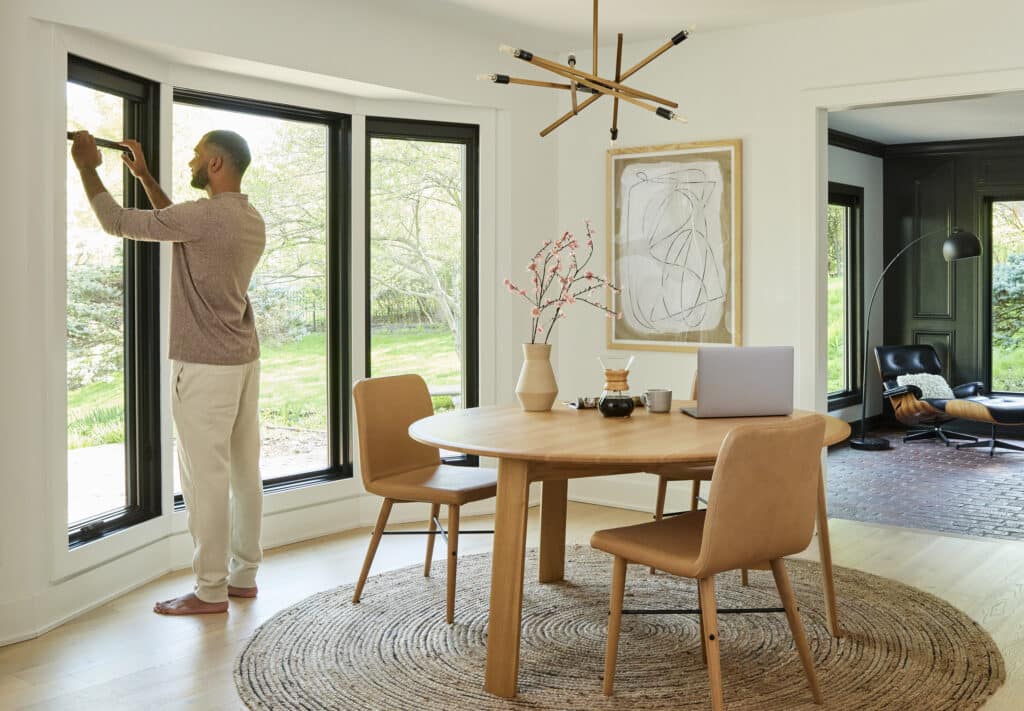How can you choose the most durable, long-lasting windows for your home? Before you buy replacements, take a look at the questions to ask.
What Is the Best Window Frame Material?
The answer to this question depends on several factors. While many window frame materials are durable, some won’t last as long as others, have possible high maintenance needs, or may conduct heat easily. Failure to care for your windows will impact the replacements’ lifespan. While you don’t need to commit to a 24/7 maintenance routine, you may need to regularly inspect, stain, paint, or clean the area.
Most window contractors offer several common materials for customers to choose from. These are available in a variety of sizes, shapes, styles, and price points. Never sacrifice quality for cost — even if you’re on a strict home improvement budget. Failure to choose a quality frame could result in leaks, early signs of wear, or premature failure. This can cost you more in additional replacement costs over time.
Aluminum is a popular, highly durable option. But this window frame material also conducts heat easily, making condensation and energy efficiency potential issues. The International Association of Certified Home Inspectors (InterNACHI) states that aluminum and aluminum-clad windows last from around 15 to 20 years.
Fiberglass is another top choice. This durable material typically lasts longer than aluminum, with a 20- to 40-year lifespan, according to InterNACHI. Like fiberglass, wooden windows also have a longer lifespan. The average for this type of frame may top 30 years. While wood can outlast other frames, it requires regular maintenance to reduce the risks of rot and warping.
What Is the Best Type of Glass?
Annealed glass is a top choice for basic window replacements. While this option is affordable, it isn’t the most durable choice and may lead to heat loss in the winter or heat gain in the summer. If this type of glass breaks, it can shatter into large, sharp pieces. This creates a mess and a safety hazard inside or outside of your house.
Tempered glass is a durable, strong, and high-quality option. The tempering process changes the property of the glass, causing it to shatter into small pellets and not large sharp shards. This increases overall safety. If you have the window replacement budget for tempered glass, this option will provide the highest level of durability and potentially the longest lifespan.
Whether you choose annealed or tempered glass, you also need to select a pane number. Multi-pane windows seal an insulating gas in between two or more pieces of glass. The result is a durable, energy-efficient product that keeps your home comfortable year-round.
What Else Impacts Durability and Lifespan?
While the frame material and type of glass impact the overall durability and average lifespan of most replacement windows, these aren’t the only factors. Again, routine care and the quality of the window can affect the replacement’s lifespan. Along with these issues, installation is also a factor to consider.
Unless you or someone you know has installation experience, never attempt a do-it-yourself window installation. Failure to install the frame or glass correctly can result in potentially serious (and costly) problems. These could include gaps, leaks, or misalignment that weaken or loosen the frame or each pane of glass.
A poorly installed window is less likely to keep the elements out, the hot and cold air in, or last for its expected lifespan. A DIY installation may save you money upfront. Yet it can cost you in unexpected utility bills, repairs, or early replacement expenses. In comparison, a qualified window contractor has the experience, knowledge, and equipment necessary to install your windows correctly.
Does your home need a window upgrade? Get in touch with Pella Windows & Doors of Wisconsin to learn more.















